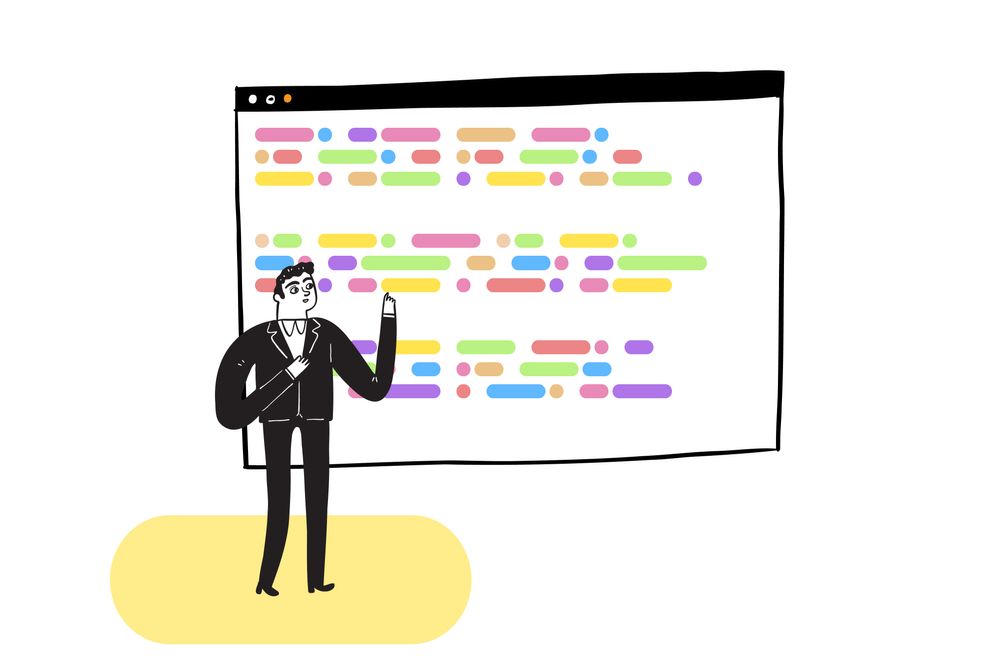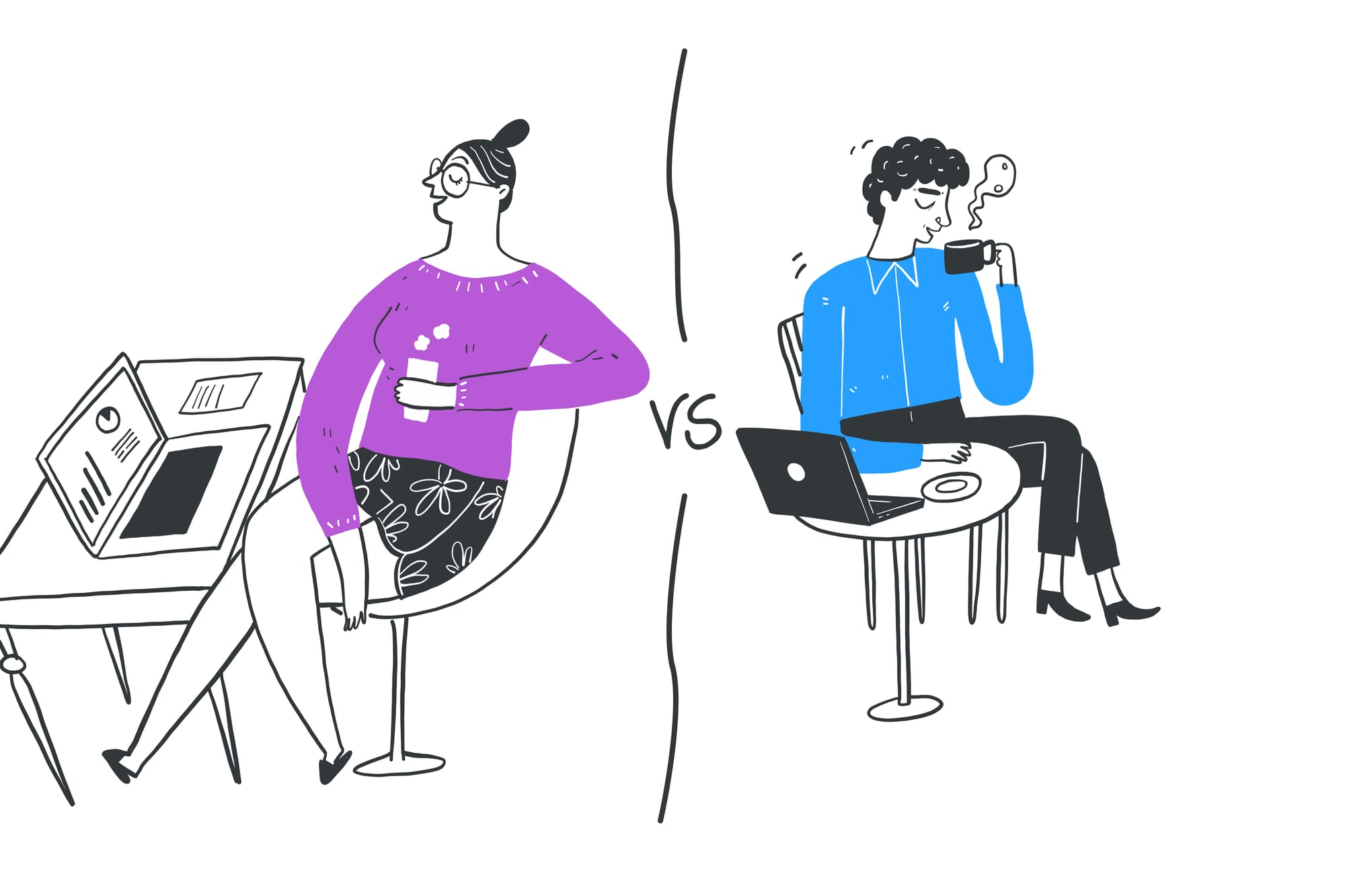I really love Anthony Bourdain’s quote about omelets. He says that “the way you make an omelet reveals your true character.”
In my 20+ years as a software engineering manager and founder of my own agency, I’d like to think that your code review best practices say a lot about your development team or maybe even your company.
At the beginning of my career, some of the companies I worked for had a very strict peer code review strategy that required forensic thoroughness and excessive documentation during its code review process. Reviewing code and going through comments was a nightmare too. Code quality, in some cases, actually suffered. All that killed morale and, as expected, productivity plunged.
For other companies, while knowledge-sharing and communication were focal points of the peer review process, they were in many cases irregular and not taken too seriously. There was always a “fixer,” in most cases a senior engineer, who would double check code, find defects, and “clean up any code mess left behind.”
I guess as an engineering manager, your task is to find a balance that works for you. In my opinion, one of the best ways to make sure code reviews are close to perfect is to be regular and to have a solid peer code review system in place.
Getting a fresh pair of eyes for en effective code review could really help pick out any mistakes, whether they’re non-destructive syntax errors or bugs that could bring down entire projects and put an end to partnerships. The infamous “# define true (rand() > 10)” line of code comes to mind. Thankfully, as is good practice, we never worked on main branches. Duh!
This blog post is based on a Code Review Best Practices created by our CTO, Karwer, who is an expert on AWS-based modern cloud application architectures, iOS development, and everything security related in software development. Plus, he’s also a Polish Sudoku Champion and has won the Polish Math & Logic Games - twice! 🏆 If you’re up to challenging him, I double dare you 😂 But first…
What Is a Code Review and How Does it Improve Code Quality?
A code review is a systematic examination of source code by one or more developers. The goal is to assess the code’s quality, identify issues, and suggest improvements. It’s a collaborative process where team members review code to ensure it meets coding guidelines, follows best practices, and aligns with the project’s requirements and objectives.
Code reviews typically involve analyzing the code’s logic, structure, readability, maintainability, performance, and security. Using a code review tool can facilitate this process and help document decisions. If you’re interested in reading up about my take on code quality, you could check out my other post on KPIs in Software Development.
During a code review, reviewers provide feedback on potential bugs, design flaws, code smells, or areas where the code could be optimized.
The idea behind a code review is to catch errors, improve high quality code, enhance overall system reliability, and promote knowledge sharing among team members.
How Do You Conduct a Code Review? What Is the Code Review Process Like?
Code reviews can be conducted through various methods, such as manual inspection, pair programming, or specialized tools that automate the review process. It is important to conduct code reviews often and in short sessions to improve the quality of the codebase while avoiding a drop in performance and attention-to-detail.
To conduct a code review effectively, you should start by setting clear objectives and scheduling the review at an appropriate stage.
Assign an experienced reviewer, establish guidelines, and utilize code review tools that may be useful. Prioritize critical areas and provide constructive feedback, focusing on the code rather than the developer.
Encourage discussion and foster a collaborative atmosphere. Follow up with iterations and appreciate the efforts made. Code reviews promote collaboration, knowledge sharing, and continuous improvement, enhancing code quality and fostering team growth.
Why Are Code Reviews Important?
Code reviews ensure high-quality software, foster teamwork, and facilitate knowledge sharing. By having multiple sets of eyes examine the code, code reviews help identify bugs, improve code readability, maintain coding guidelines, and catch potential issues early on.
They provide an opportunity for developers to gain insights into different programming languages and best practices. Performing code reviews promptly and thoroughly avoids blocking progress and ensures the quality of the code base.
Code reviews also promote accountability and help establish a culture of quality and continuous improvement within the development team. Ultimately, code reviews contribute to producing reliable, maintainable, and robust software applications.
CODE REVIEW BEST PRACTICES 🛠️
Here's your code review checklist, designed to help you ensure code quality, foster team collaboration, and promote continuous learning within your development team. By following these best practices, you can enhance the effectiveness of your code reviews, making the process smoother and more productive for everyone involved. Remember, the review process is an opportunity for growth and improvement. Let's dive in and see how you can apply these principles to your daily workflow.
1. When you perform code reviews, don’t focus on a specific chunk of code alone. Understand the entire context as this will help you catch the functional problems.
2. Peer code review is the cornerstone of software development. Peer reviews also promote knowledge sharing and skill development among team members. However, don’t assume that the more experienced developer should be reviewing the code of a less experienced developer. Everyone can learn from each other, and everyone in your team could potentially catch an issue.
3. Don’t focus on minor things like, for example, two empty lines instead of one. Configure an automated check using a linter for such things to prevent the reviewer from getting distracted.
4. Set up static code analysis as part of the CI workflow to ensure that the code is formatted according to the project coding style before requesting a review. Automated checks save time and reduce errors in the review process.
5. Treat the code review process not only as a means to ensure the application quality but also to share knowledge and establish best practices. Reviewing code has to make the entire development team better!
6. Foster a good code review culture within your team. A good code review culture makes the reviews more impactful, smooth, and beneficial for both authors and reviewers. The process should depend on the team structure and company guidelines.
7. As a repository maintainer, keep the discussion in comments focused on the goal of the pull request. Avoid any debates or heated discussions about the pull request.
8. Keep the comments focused, constructive, and polite. Do not position yourself as being smarter or more knowledgeable. Ask questions instead of giving orders.
9. For the author of the pull request, be open to comments and suggestions. Do not assume bad intentions from the reviewer. If you don’t understand the suggestion given, keep asking questions until you do. This is also a way to gain knowledge.
10. Do not treat code reviews as a means to block the pull request completely. Depending on the policy of your company, but in general, the only reason you should reject code is when the pull request does not meet the functional or non-functional requirements of the application correctly.
11. Do not treat code reviews as boring and something that you have to do. Remember: your colleague is waiting for your review and is really looking forward to hearing your advice. A good practice is to start the day with a code review waiting for you.
12. Try not to skip parts of code that you may find less important e.g. some people avoid reviewing test code since it looks repetitive and may be boring to get insights from it.
Conclusion
“From now on, all code will be 100% peer-reviewed!”
If there’s one thing I’d like you to take away from this post, it’s for you to have better code reviews and code reviewers! I would also like for you to be convinced of code reviews’ importance and to be able to say the above phrase to your experienced reviewers, team leads, or entire dev team.
By integrating code review into your workflow, you ensure a robust and reliable codebase while fostering collaboration and growth within your teams. Using code review checklists can further improve performance and build a shared understanding within the team. Embrace the power of code review and reap the rewards it offers to elevate your software development endeavors.
Special thanks to my colleague and good friend Michał “Karwer” Karwanski for creating this comprehensive and insightful Best Practices for Code Reviews ⛺





